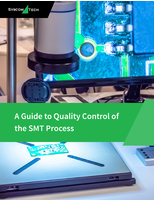Fixed Content Storage Appliance suits long-term applications.
Share:
Press Release Summary:
Enterprise-class Hybrid Storage Appliance(TM) (HSA) leverages distributed-performance architecture with petabyte-class scalability (1.2 PB max) and virtualization of underlying storage technologies. Leveraging dual quad-core CPUs and intelligent disk-based caching, system consumes 5 W/TB, ingests more than 32 TB per day, and handles 30,000+ file requests/hr from back-end archive repository. HSA components are connected via switched Ethernet backbone with Gigabit and 10 Gigabit options.
Original Press Release:
New PowerFile Hybrid Storage Appliance Revolutionizes the Economics of Enterprise-Class Fixed Content Storage
Santa Clara, California, May 5, 2009 - PowerFile® Inc., the leader in long-term storage appliances for fixed digital content and assets, today announced its new enterprise-class Hybrid Storage Appliance(TM), that delivers the performance of disk, the economy of tape, and superior reliability and data integrity in a purpose-built platform optimized for long-term storage of fixed content.
The PowerFile HSA leverages an innovative, distributed-performance architecture with petabyte-class scalability and virtualization of the underlying storage technologies to create an integrated appliance that transforms the economics of long-term storage of fixed content. By combining intelligent storage management software and sophisticated file management with cost-effective, robust hardware, the HSA significantly lowers both CAPEX and OPEX.
Leading analysts estimate that up to 80 percent of enterprise data is fixed content and organizations are holding onto that data for longer retention periods based on corporate policies for litigation support and regulatory compliance. Relocating this data from Tier 1 or Tier 2 disk to a PowerFile HSA provides a huge advantage in driving down the cost of enterprise storage, eliminating the cost of unnecessary data migration operations every three to five years.
In addition, the PowerFile HSA frees enterprise customers from the cost of the hidden "storage tax" imposed on fixed content by disk storage. The HSA significantly reduces or eliminates the CAPEX storage tax imposed with the higher cost of acquisition of Tier 1 and Tier 2 disk, backup hardware and maintenance for non-changing data. Customers incur additional OPEX storage taxes for items such as storage and backup management and technology refresh. The total storage tax imposed by hard disk storage comes to a 5x to 10x TCO premium compared to the cost of deploying a PowerFile HSA.
By leveraging quad-core processor technology, intelligent disk-based caching, and a distributed processing architecture that efficiently scales both capacity and performance, the Hybrid Storage Appliance is able to ingest more than 32 terabytes per day and handle more than 30,000 file requests per hour from the back-end archive repository, all while using less than 10 percent of the energy required for a disk-based archive solution.
"There is no debate that using hard disk-based solutions for long-term storage of fixed content data is an unsustainable strategy for enterprises, given the crushing capital and ongoing operations expenses," said Kirk Dunn, CEO at PowerFile. "PowerFile's hybrid storage approach breaks with convention by creating a new storage platform that provides performance when you need it, economy when you don't and in the process eliminates most of the costs associated with the storage tax resulting in up to a 10x cost advantage over disk-based storage."
The new PowerFile Hybrid Storage Appliance boasts a data center-optimized design with up to 500 terabytes of capacity in a standard 42u rack, providing efficient use of costly data center floor space with industry-leading rack data density. The energy-efficient design consumes just 5 watts per TB, approximately 5 to 10 percent of the energy usage compared to spinning disk, delivering substantial OPEX cost savings. More importantly, it significantly reduces energy requirements for data centers that are nearing the limits of available energy capacity.
The HSA is composed of three scalable units: the HSA System controller, utilizing dual quad-core processors to power the HybridOS operating system at enterprise speeds, the HSA Cache Array, a 12 to 48TB RAID array that provides sustained data ingestion to the HSA, and the HSA Library, a 4u enclosure with 25 TB of removable, Blu-ray-based capacity and up to 12 industry-standard Blu-ray drives. Up to 24 library modules can be added to a single HSA for a total system capacity of 1.2 petabytes. HSA components are connected via a high-speed, high-availability switched Ethernet backbone with Gigabit and 10 Gigabit options to precisely match the customer's cost and performance requirements.
PowerFile designed the HSA as a turnkey appliance by building in the functionality to manage long-term fixed content storage, including file-level WORM, thin provisioning, retention management, volume replication and automated monitoring. PowerFile also offers a series of optional data management applications, including Touchless DR(TM) WAN replication to automate the creation of replication volumes for WAN-based recovery in the event of a disaster, Adaptive Data Reduction(TM) capacity optimization software to increased rack data density, improve power efficiency and reduce network traffic, and Archive Facilitator(TM), a policy-based discovery, classification and migration tool for automated recovery of fixed content.
To facilitate data and media management, PowerFile has adopted the use of cartridge-based Blu-ray disc media for the HSA, enabling bulk loading and unloading and the ability to track data similar to cartridge tape media. The system uses a flash memory chip on the cartridge to internally track the data stored on each disc and then uses bar coding tied to a unique serial number, allowing customers to use the system to track offline data as well.
Conforming to the data center-focused design of the HSA, PowerFile developed the patent-pending Extended Verification and Self-healing Technology (EVAST) to ensure that Blu-ray drive and media technologies measure up in reliability. EVAST establishes a new standard for data integrity by delivering a 100x improvement over RAID 6 with less than 10 percent capacity overhead.
About PowerFile
PowerFile Inc. is leader in hybrid storage appliances for long-term storage of digital content and assets. The company's award-winning solutions combine the speed and simplicity of online access with better economics and integrity compared to traditional storage solutions, empowering organizations of all sizes to efficiently manage, secure, and preserve valuable digital assets. PowerFile's product offerings combine intelligent storage management software and sophisticated file management with cost-effective, robust hardware to deliver integrated, active, easy-to-use solutions. PowerFile's impressive list of world-class customers have deployed more than 25 petabytes of archive capacity in various industries including digital media, engineering, government, Internet services, life sciences, manufacturing, oil and gas, and telecommunications. Whether they are from the Fortune® 1000 or the public sector they all share a common need to cost-effectively preserve growing amounts of valuable information for long periods of time.
PowerFile and Hybrid Storage Appliance are trademarks of PowerFile Inc. All other trademarks are the property of their respective companies.




